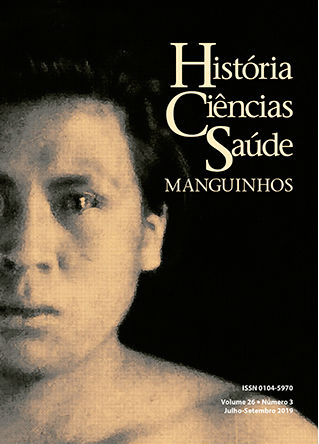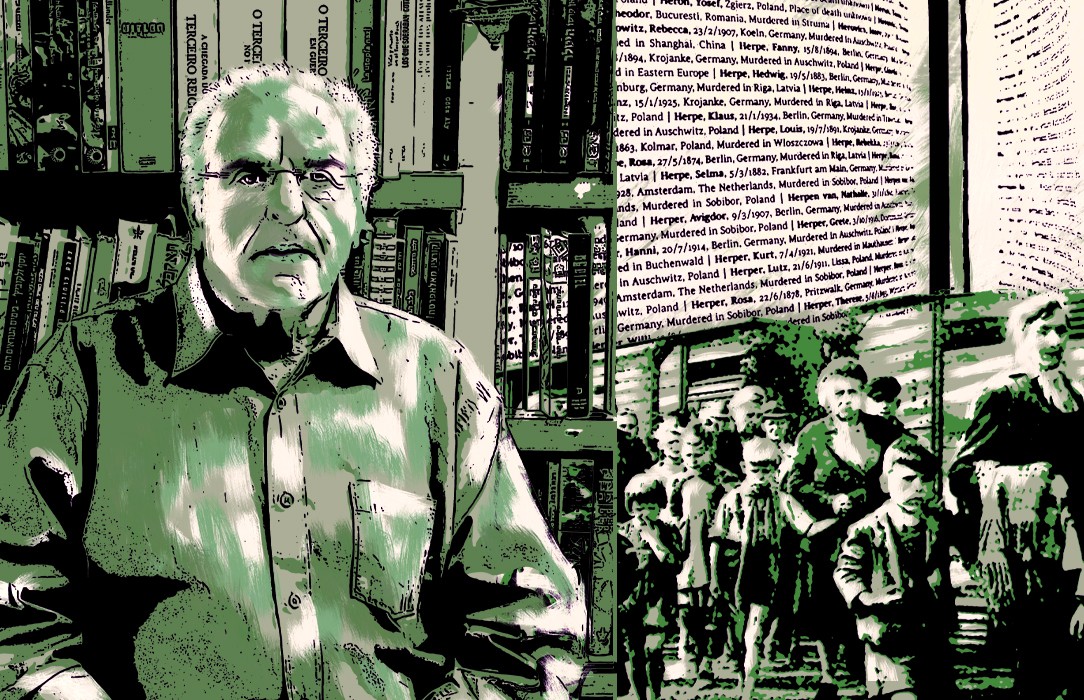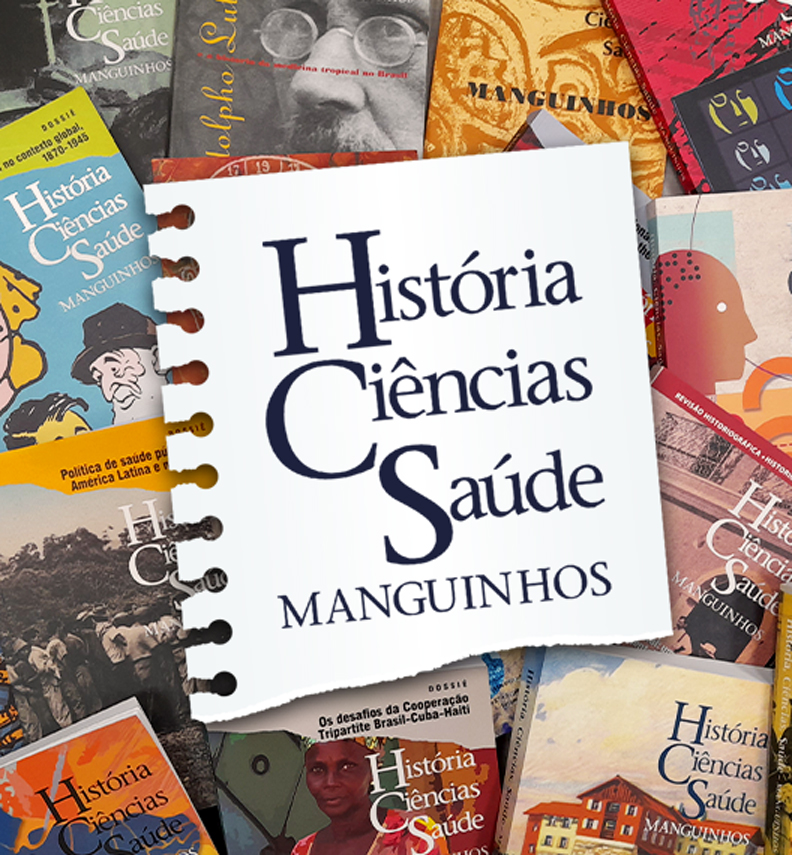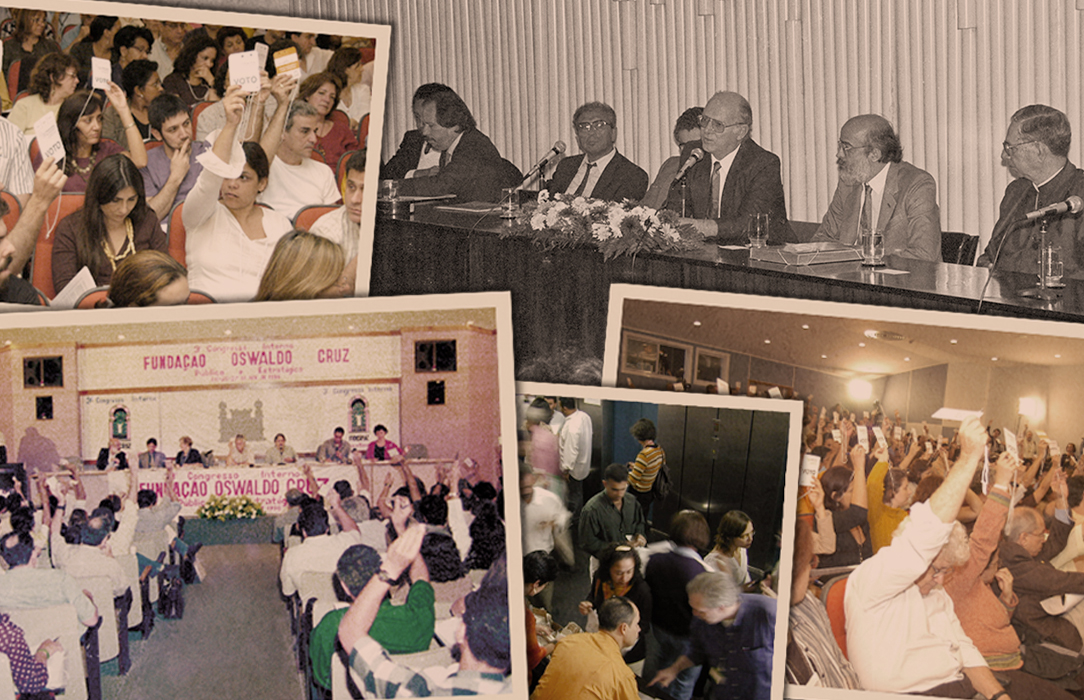 |
Nineteenth-century anthropological exhibitions of members of the Botocudo indigenous people and the investigation of laboratory notebooks from the Oswaldo Cruz Institute are some of the highlights of the latest issue of the journal História, Ciências, Saúde – Manguinhos (vol. 26, no. 3, Jul.-Sep. 2019), a publication of the Casa de Oswaldo Cruz, Fiocruz. Thirteen articles on various topics can be found in the Analysis department, with other original contributions appearing in Interviews, Research Notes, Sources, and Books & Networks.
Written by Georg Fischer, Associate Professor at Aarhus University in Denmark, the article on the Botocudo indigenous people proposes an entangled perspective on the nineteenth-century anthropological exhibitions that took place first in Rio de Janeiro and then in the United Kingdom, in 1882. The presence of these Indians in what was then the capital of Brazil had lasting effects on the popular entertainment scene. Furthermore, when these people were taken abroad, concerns were raised about their being made into objects of exotic voyeurism.
Other articles explore topics such as medical knowledge and moral reflections in Buenos Aires from 1835 to 1847; the image of the scientist in animated shorts; the participation of Latin American scientists in European programs; the early training of the physician Antônio Luis Cavalcanti de Albuquerque de Barros Barreto; the arrival and spread of the Anopheles gambiae in Brazil; pediatrics and the culture of scientific voyages in Spain from 1907 to 1939; the relation between psychiatric illnesses and literary creation in the work of Machado de Assis; the energy metaphor for the human body and diagnoses of neurasthenia, neurosis, and depression; the biographical work of survivors of Hansen’s disease; the phenomenon of the sociology of self-help in contemporary society; diseases neglected by the media; and mobile phone apps for health management.
Research Notes
Three researchers at the Casa de Oswaldo Cruz, Paulo Roberto Elian dos Santos, Francisco dos Santos Lourenço, and Renata Silva Borges, have studied laboratory notebooks from the Oswaldo Cruz Institute that were produced during the course of scientific activity. The researchers have done bibliographic research on this material, in addition to applying a questionnaire, conducting interviews, and surveying archives in order to identify record genesis, species/typologies, and the maintenance and use practices employed with records from fifteen laboratories. In this research note, the authors also discuss open-source laboratory notebooks, a new format introduced as part of the contemporary move toward open science.
Editor’s Note
Signed by André Felipe Cândido da Silva, researcher and science editor of HCS-Manguinhos, the latest Editor’s Note contemplates the challenges now facing science publications, especially in the social and human sciences. Drawing from discussions held during events that commemorated the journal’s 25th anniversary, André Felipe analyzes current changes to the editorial process, including the introduction of pre-prints and the advance of open science. The editor drives home the value of science journals focused on the field of history and states that these periodicals are “responsible for the quality of their published content and for compliance with ethical parameters, while they also offer ways of leveraging training, development, and innovation.” André Felipe also announces changes to the journal’s editorial team, including his move to assistant editor. Marcos Cueto will continue as science editor for the next four years.
Interviews
In the Interviews department, Casa de Oswaldo Cruz researchers Carlos Henrique Assunção Paiva, Fernando Pires-Alves, and Luiz Antonio Teixeira talk with the sociologist Luiz Antonio de Castro Santos, a visiting professor from Maranhão State University, who has made major contributions to the integration of the social sciences and health in Brazil. Prof. Castro Santos shares stories about some of the main figures involved in this process and its landmark moments.
Sources
Through his study of “Disertación de la manía aguda” (1827), by physician Diego Alcorta, Esteban Augusto Greifi, a professor at the University of Buenos Aires, sheds new light on the rise of clinical experiences in the River Plate region. In another article, professors Leicy Francisca da Silva, of Goiás State University, and Ricardo Antonio Gonçalves Teixeira, of the Federal University of Goiás, consider the right to memory in their analysis of the records archive at the Eunice Weaver School, which opened in Goiania, Goiás, in 1943, as part of the Educandário/Preventório Afrânio de Azevedo. Such archives afford access to the memory of children subjected to policies to prevent Hansen’s disease.
Books & Networks
Six reviews are available in the Books & Network Department of this edition of HCS-Manguinhos. André Vasques Vital appraises Jessica Riskin’s The Restless Clock: A History of the Centuries-Long Argument over What Makes Living Things Tick. Gerson Pietta looks at Em busca do Brasil: Edgar Roquette-Pinto e o retrato antropológico brasileiro (1905-1935) by Vanderlei Sebastião de Souza. As “novas” políticas sociais brasileiras na saúde e na assistência: uma produção local do serviço e das relações de gênero, by Isabel Georges and Yumi Garcia dos Santos, is reviewed by Waleska Aureliano. Ricardo Soares and Paulo Henrique Zuzarte Ferreira discuss Carlo Rovelli’s A ordem do tempo, while Julia Emilia Rodriguez examines Madhouse: Psychiatry and Politics in Cuban History by Jennifer L. Lambe. Lastly, Moisés Stahl turns his eye to Darwinismo, raça e gênero: projetos modernizadores da nação em conferências e cursos públicos (Rio de Janeiro, 1870-1889), by Karoline Carula.






